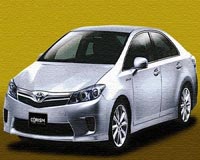 |
Houston TX (SPX) Oct 01, 2010 Electric cars hold greater promise for reducing emissions and lowering U.S. oil imports than a national renewable portfolio standard, according to research conducted by Rice University's Baker Institute for Public Policy. This assessment is among several contained in a new major policy study the Baker Institute Energy Forum will release at a Sept. 27-28 conference titled "Energy Market Consequences of an Emerging U.S. Carbon Management Policy." The study comprises several academic working papers on a variety of topics, such as carbon pricing, the wind industry, global U.S. carbon and energy strategies, and renewable energy R and D. "As the country moves forward to deliberate on energy and climate policy," the executive summary states, "consideration must be given to what policies would best accomplish the stated goals for U.S. policy - a reduction in the need for imported oil and in greenhouse gas emissions." The papers released at the conference seek to "clarify and debunk common myths that currently plague the U.S. energy- and climate-policy debate." For instance, the Baker Institute analysis found "the single most effective way to reduce U.S. oil demand and foreign imports would be an aggressive campaign to launch electric vehicles into the automotive fleet." In fact, mandating that 30 percent of all vehicles be electric by 2050 would both reduce U.S. oil use by 2.5 million barrels a day beyond the 3 million barrels-per-day savings already expected from new corporate average fuel efficiency standards, and also cut emissions by 7 percent, while the proposed national renewable portfolio standard (RPS) would cut them by only 4 percent over the same time. Moreover, the researchers found that "business-as-usual market-related trends might propel the United States toward greater oil and natural gas self-sufficiency over the next 20 years while scenarios specifically focused on strict carbon caps and pricing or a high carbon tax of $60 a tonne or more could lead to a significant increase in U.S. reliance on oil imports between now and 2025. A carbon tax of $30 a tonne would also increase U.S. dependence on imports of foreign liquefied natural gas (LNG) by 2025." The Baker Institute researchers foresee natural gas - reinforced by recent discoveries of vast reserves of shale gas - playing "a very important role in the U.S. energy mix for decades to come." Under a business-as-usual approach, the United States won't have to import any LNG for decades. And the growth of natural gas will help the environment by lowering the demand for coal.
Share This Article With Planet Earth
Related Links Baker Institute Report Rice University Car Technology at SpaceMart.com
 Japan develops vehicle motor free of rare earths
Japan develops vehicle motor free of rare earthsTokyo, Japan (AFP) Sept 30, 2010 Japanese researchers said Thursday they had developed a hybrid vehicle motor that is free of rare earths, the minerals that are now almost exclusively produced by China. The news from a state-backed research group and a university comes days after industry sources said China had temporarily halted crucial rare earth exports to Japan amid a bitter territorial dispute. Magnets made from ra ... read more |
|
| The content herein, unless otherwise known to be public domain, are Copyright 1995-2010 - SpaceDaily. AFP and UPI Wire Stories are copyright Agence France-Presse and United Press International. ESA Portal Reports are copyright European Space Agency. All NASA sourced material is public domain. Additional copyrights may apply in whole or part to other bona fide parties. Advertising does not imply endorsement,agreement or approval of any opinions, statements or information provided by SpaceDaily on any Web page published or hosted by SpaceDaily. Privacy Statement |